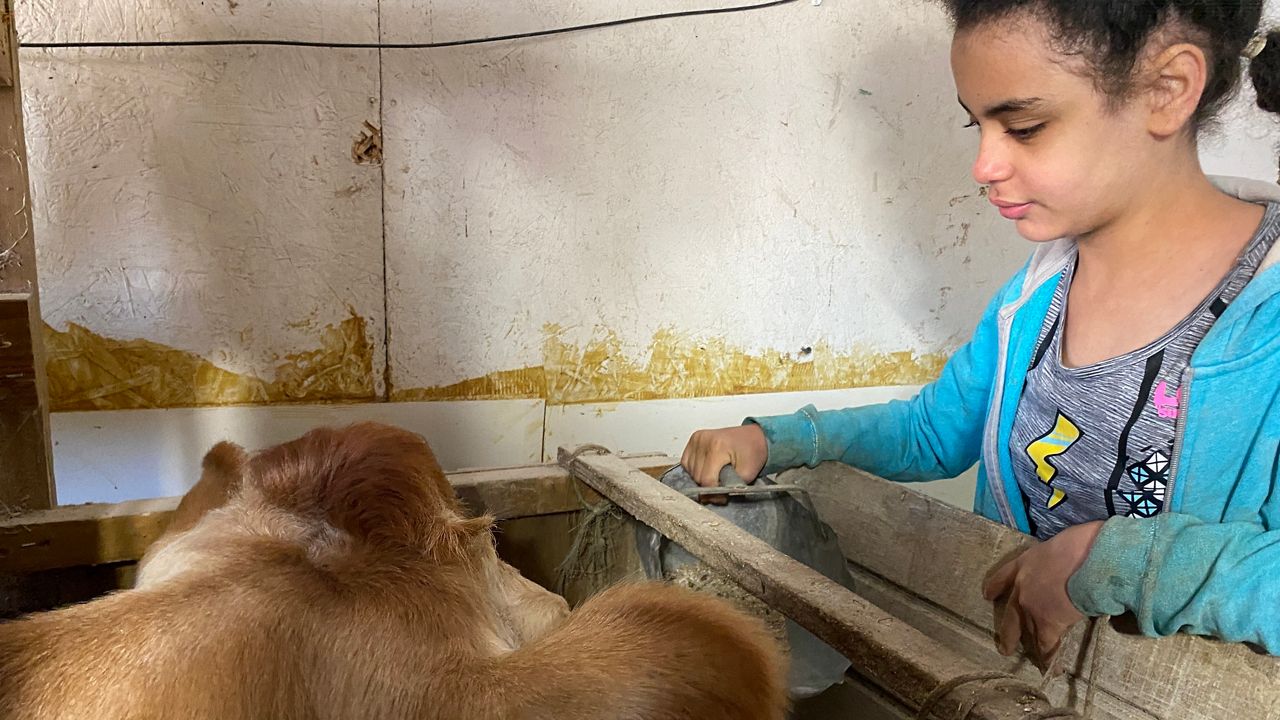LEXINGTON, Ky. — On the 12 acre farm in Lexington is where you'll usually find the Abraham family milking cows. Kenya Abraham, who is one generation removed from farming, decided to take on the role of a dairy farmer after finding out she was lactose intolerant.
What You Need To Know
- SLAK Market Farm is located on 12 acres of land in Lexington
- Kenya Abraham decided to take on the role of a dairy farmer after finding out she was lactose intolerant
- Farmers are coming up with ways to keep cows warm and healthy during winter weather
- SLAK stands for the initials of their children's names Sabeal, Laila, Aiya and Kathem
“People who have intolerance to pasteurized milk can drink raw milk, and so I have been since. And I wanted to produce milk for my family but other people as well, seeing that everybody seems to have these issues and was dismissing real milk as an option for what they should be drinking,” Kenya said.
After watching a host of YouTube videos, the Abraham family was ready for business at SLAK Market Farm in 2013. SLAK stands for the initials of their children's names: Sabeal, Laila, Aiya and Kathem.

The oldest daughter of six children, 12-year-old Aiya Abraham takes the lead on milking.
“The first time I ever milked a cow I was asking momma if I could squirt out [the cow's] samples and so whenever I squirt her samples it just kind of reminds me of the first time I milked her,” Aiya said.
SLAK Market Farm now has 11 cows and usually produces 7 gallons of milk per day, but as the colder weather starts to arrive, the Abraham family has developed different techniques on ways to protect their cattle.
“When they leave here we post dip them with an iodine solution that's liquid,” Kenya said. “That's different in the winter time. You have to use something else like cornstarch or something dry to post dip them and cover their teet and send them out with that to avoid frostbite.”
Another method they're using? Feeding a certified organic diet to their livestock.
“It's more of a natural way to make sure we don't have any chemicals in our milk,” Kenya said. “For me, I think if I'm going to not feed my animals certified organic feed, I may as well just go to the grocery store and buy my products.”
The Kentucky farmers are hoping that their hard work pays off for the generations of SLAK Market farmers to come.
“That's one thing we want to be sure that we do is start that process within our own family so my son has already committed to being the next farmer of this farm,” Kenya said. “Will he milk cows? I don't know. He says no but I think he will.”



